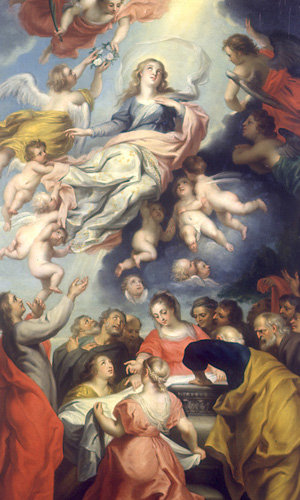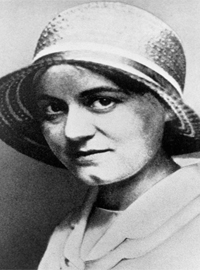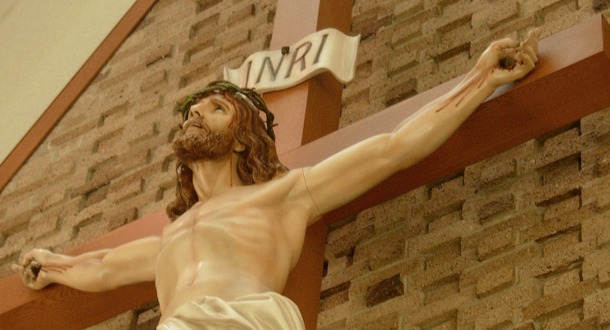
Scripture:
Joshua 24:14-29
Matthew 19: 13-15
Reflection:
Children were brought to Jesus that he might lay his hands on them and pray. The disciples rebuked them, but Jesus said, “Let the children come to me, and do not prevent them; for the Kingdom of heaven belongs to such as these.” After he placed his hands on them, he went away. Matthew 19: 13 – 15
There are certain Scripture passages that are so iconic and visual that they have inspired artists from every century and culture. The Gospel passage we have for today’s Mass is certainly one of those inspirational and moving scenes. In fact, this is one of the few Gospel images that appeals to children. I remember having, as a child, two favorite holy cards: my guardian angel helping me over a bridge and Jesus blessing children. I didn’t need any lengthy theological explanations to understand the underlying messages that these two images represented. I needed a Guardian Angel to help me cross dangerous, broken down bridges in life and I needed Jesus to welcome me into his arms and bless me. Being protected, blest and loved as a child is so very important!
To this day, children spontaneously run to persons who represent God and God’s way of life, without having to understand that person’s theology. I don’t know how many times little children have come running out of Mass to hug me, the celebrant. They do this naturally. Anyone who has been close to a school yard and seen a religious sister, brother or a priest walk across the grounds will quickly see children running toward them and surrounding them with hugs and joy.
There is this little line in today’s Gospel that I believe makes it very challenging for us. It says, referring to the children that were being brought to Jesus for a blessing: “The disciples rebuked them.” At first glance, we can become very upset with those disciples. How dare they prevent those children from approaching Jesus!
I think if we were to look deeper into our own attitudes and concerns for children, we would see a lot of the disciples’ behavior in our own.
It is always amazing to me to see so many loving and caring families come to Church with their children. Some do this so very well. They come in ahead of time, bless themselves and encourage their children to do the same, holding their hands nicely and leading them to an appropriate place within Church. Some parents will give them prayer and song books. Regardless of the child’s attention span, there is nothing but patient attention given to their children.
On the other hand, I’ve seen families come in as if their children are a burden, correcting them, shoving them, and discipling them. At some point or another, all children tend to act out. But it is how we respond to them that will either encourage them to be at home within church or to see church just as a social obligation.
The way that people and parents speak to children about today’s priests, brothers and sisters, as well as today’s Church, will have a lot to do with the beliefs and assumptions that these children will have as adults. I remember talking to a young woman years ago, telling me that her dad told her never to trust priests because all they wanted was money. In today’s culture, it may be about priest abuse of children. Regardless the message, children will learn from our witness, our conversations, and our attitudes. This is how we prevent today’s children from approaching Jesus.
Jesus says to us today: “Let the children come to me.” How are we to respond?
Fr. Clemente Barrón, CP, is a member of Mater Dolorosa Community in Sierra Madre, California.







